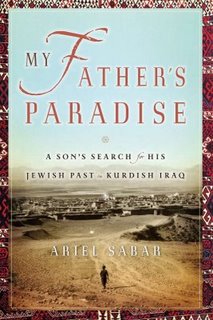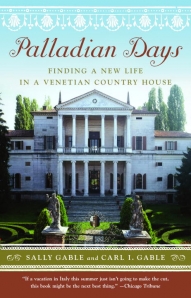This review contains affiliate links, which earn me a small commission when you click and purchase, at no extra cost to you. Thank you for supporting my small business and allowing me to continue providing you a reliable resource for clean book ratings.
Not very long ago, small outposts of Jews lived in Kurdish Iraq. These Jews had lived there for hundreds and hundreds of years, living not only peaceably but happily with their Muslim neighbors. Even more interestingly, a portion of these exiles had spoken Aramaic for hundreds of years — a language that many scholars thought had been lost as a spoken tongue for ages.
Ariel Sabar, an American journalist, treats readers to a fascinating look at a tiny place and isolated group of people that existed just a few decades ago, but now has been dispersed. Sabar’s father, Yona, had grown up in Zakho, Iraq, a small village in the Kurdish part of northern Iraq, near Turkey, and had emigrated first to Israel and then to the United States. Yona Sabar had not only clung to his roots, but had parlayed them into a career, as a professor of linguistics specializing in neo-Aramaic, the tongue he grew up speaking.
The son, however, as a young man growing up in Los Angeles, had been ashamed and embarrassed about his quirky foreigner father and had long spurned his roots. This poignant and informative book pays tribute to those roots and brings alive a culture that many would never have known about outside of small academic circles.
Ariel Sabar portrays the town of Zakho as a place where Muslims and Jews had mostly lived in harmony for years and years, away from the larger cities of Iraq, from which political and religious disharmony eventually penetrated to drive the Jews from the country and into Israel and other neighboring lands. He paints detailed portraits of the people who inhabited the town, particularly of his family, of course, but also of those who were his family’s friends. He recounts with pathos the inevitable tragedies, sorrows and deprivations that were suffered in that remote area, and the path that eventually led the family away to what they had expected would be the Promised Land of Israel.
Israel, however, was not at all how the family envisioned it would be, and it was for the immediate generation a permanent step down from their life in Zakho. But the next generations found success and a new life, and had they not, we would never have had the opportunity to hear their story. Sabar finds and relates so much of human and historical interest, and he makes readers begin to feel that his family is theirs.
My Father’s Paradise is a beautiful book, one that will enrich the lives of all who are blessed to read it.
Rated: Moderate, for some language. There are three occasions of strong language, and about ten uses of mild and moderate language.
Click here to purchase your copy of My Father’s Paradise on Amazon.




